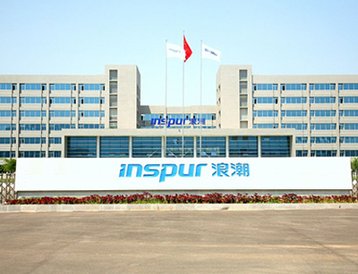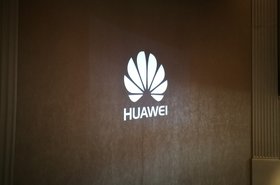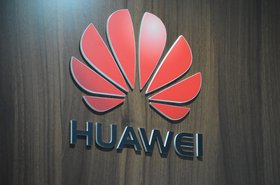The US Department of Defense has published a list of 20 companies it claims are closely tied to the Chinese military.
The list includes state-owned entities involved in nuclear power, aviation, and railway infrastructure, as well as telecoms companies and server manufacturers.
The decoupling continues
In the technology sector, the companies on the list include state-owned enterprises China Electronics Technology Group, China Mobile, and China Telecommunications Corp, and nominally private businesses Hikvision, Huawei, Inspur, Panda Electronics Group, and Sugon.
Sanctions were previously levied against surveillance company Hikvision for alleged involvement in human rights abuses against Muslim minorities in Xinjiang. Sugon was similarly blacklisted in 2019 for allegedly selling supercomputers to the Chinese military, to be used for nuclear weapons research.
Panda Electronics, which sells consumer products including mobile phones, datacards, TV sets and set top boxes, and enterprise and government producst like satellite communication equipment and administrative software, has long been accused of having ties to the People's Liberation Army. It also operates a joint venture in North Korea in collaboration with the ruling regime.
Huawei, meanwhile, has faced the brunt of US sanctions against Chinese tech companies. The telco giant is on the entity list, US officials are pressuring allies not to use its equipment, and the daughter of the company's founder is currently on trial. The US claims Huawei is owned by the state, works with the military, and uses its equipment for spying. Huawei denies these allegations.
That leaves Inspur.
The server manufacturer has mostly managed to escape the ire of US officials, and has previously been left out of public discussions over Chinese companies with uncomfortable state ties. So far, it has avoided sanctions that would restrict its ability to use the US chips that power all of its server products.
Its site boast testimonials from senior officials at Nvidia, Cisco, Intel, and others. "Inspur is a fantastic company to work with... they're critical to bringing the latest AI technologies to all of our customers," data center head at Nvidia, Ian Buck, states in one of the videos.
The third largest server manufacturer in the world, and the largest in China, Inspur targets cloud, enterprise data centers, and - increasingly - AI workloads. It is a member of the Open Compute Project, Open19 initiative and Open Power project.
Ironically, the company managed to secure market share in China due to US overreach. In 2014, it focused on overtaking IBM and HPE by highlighting its lack of US ties amid the growing NSA surveillance scandal brought to light by Edward Snowden.
The exact reason for Inspur's inclusion on the DoD list was not shared, but a 2015 Defense Group Inc. report claimed that the Chinese military uses Inspur computers, mobile mapping systems and communications systems. The company also allegedly counts the China Air-to-Air Missile Research Academy and the China Academy of Engineering Physics among its customers. DCD has contacted the company for comment.
Now what?
The DoD's list was actually mandated by Congress back in 1999, but it either was previously never made or never publicly shared.
The President has the power to level financial and trade sanctions against the companies on the list, under the International Emergency Economics Powers Act of 1977 - but can also choose not to act.
“As the People’s Republic of China attempts to blur the lines between civil and military sectors, ‘knowing your supplier’ is critical,” DoD spokesperson Jonathan Hoffman said in a statement.
“We envision this list will be a useful tool for the US government, companies, investors, academic institutions, and like-minded partners to conduct due diligence with regard to partnerships with these entities, particularly as the list grows.”




